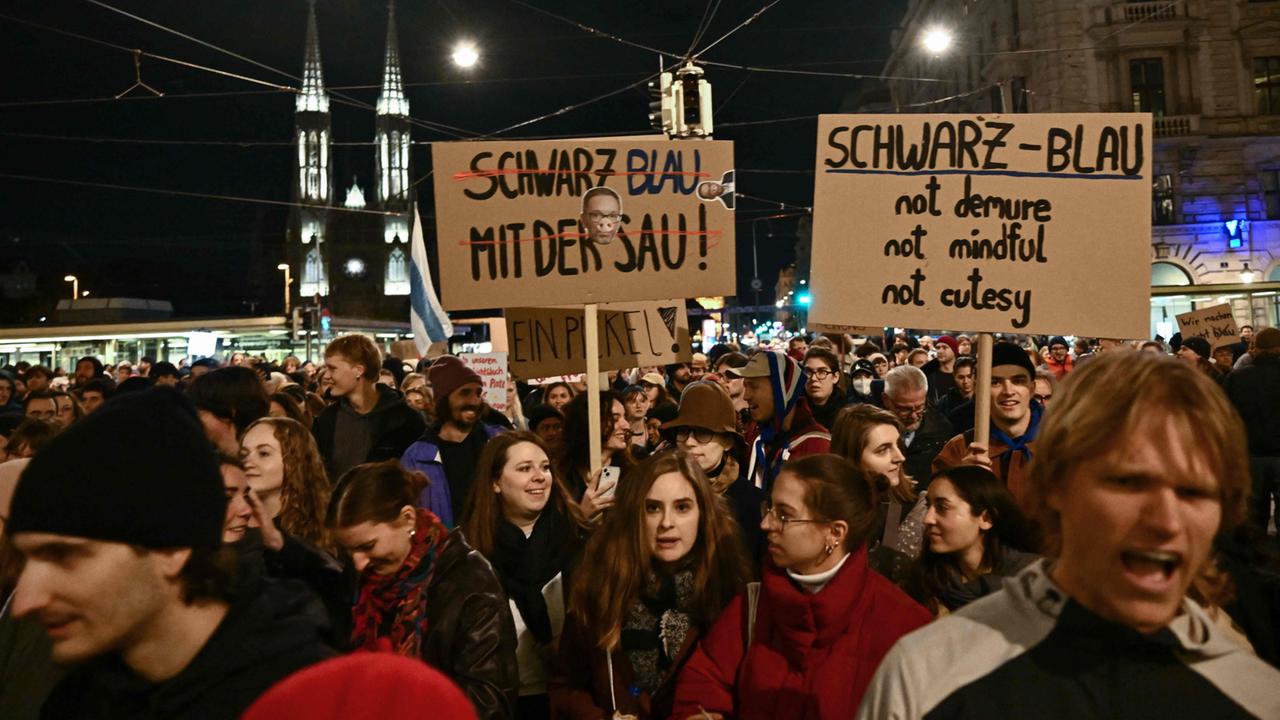The right-wing populist FPÖ is the winner of the election in Austria – and wants to govern. Thousands of people protested against this in Vienna. FPÖ leader Kickl is with Federal President Van der Bellen today for the first exploratory talks.
Thousands of people protested in Vienna against the right-wing FPÖ's possible participation in government. The organizers of the meeting spoke of around 25,000 participants. The police did not comment on the figures. The demonstration marched through the city center to Parliament.
The participants carried signs with slogans such as “No coalition with Nazis.” On a poster, FPÖ leader Herbert Kickl was seen as a puppet of Russian President Vladimir Putin – an allusion to the politician's pro-Kremlin positions.
Kickl provides Chancellor claim
The FPÖ won the parliamentary election on Sunday. Almost all other parties completely reject a coalition with the right-wing populists. The conservative ÖVP under the previous Chancellor Karl Nehammer does not rule out cooperation.
But it sets the condition that FPÖ leader Kickl, who is known for his extreme rhetoric, does not take on government responsibility. However, he claims to be chancellor.
Van der Bellen emphasizes core values
The Federal President plays a key role in the search for a new government in Austria. Alexander Van der Bellen had already announced that he wanted to speak to all party leaders. Kickl starts things off. However, according to the constitution, the directly elected Federal President is not obliged to give the candidate from the strongest faction the task of forming a government.
Kickl was optimistic in advance. According to the AFP news agency, democracy and human rights as well as fundamental and freedom rights are just as important to him as Van der Bellen, he said. After the election, van der Bellen emphasized “that the fundamental pillars of our liberal democracy must be respected when forming a government.” In addition, a parliamentary majority of at least 50 percent is required.
ÖVP-SPÖ coalition also possible
If the ÖVP and FPÖ do not find each other, a coalition between the ÖVP and the social democratic SPÖ is considered a possible alternative. But the two center parties together will only occupy 92 of the 183 seats in the National Council – an extremely narrow parliamentary majority. That's why an alliance of ÖVP, SPÖ and liberal Neos is also a possibility.
The Interior Ministry published the final result of the election on Thursday night. Accordingly, the FPÖ won with 28.8 percent of the vote (plus 12.7 percentage points), followed by the ÖVP with 26.3 percent (minus 11.2). The SPÖ got 21.1 percent (minus 0.04). The Neos received 9.1 percent of the vote (plus 1), and the Greens, who have previously governed with the ÖVP, 8.2 percent (minus 5.7). The rest went to small parties that did not make it into parliament.




